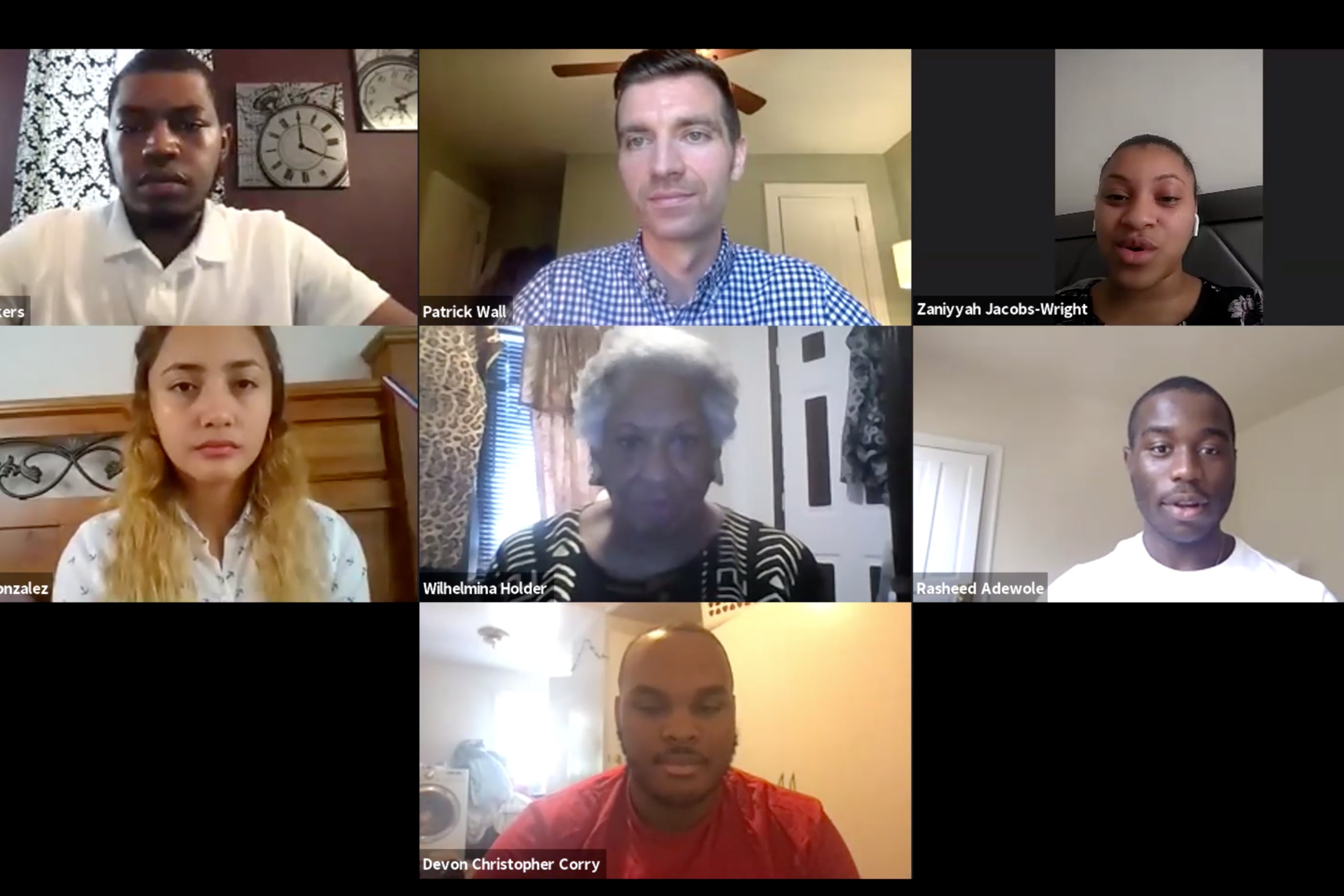For first-year students headed to college this fall, their first semester of higher education is fraught with uncertainty. The usual in-person rituals and rites of passage won’t exist as the threat of COVID-19 upends on-campus learning and activities across the nation.
This could be especially hard for first-generation college students or teens from disinvested communities where the first year of higher education can lay a foundation for future success or become a stumbling block. Now, the coronavirus pandemic has added to those first-year challenges by putting a financial strain on many families and disrupting campus life and classes.
“You had to find a new learning environment because you’re no longer going to a library, you’re no longer studying with friends, and now you’re transitioning to typing on a phone,” said Kamil Vickers, a Newark student who was in the middle of his freshman year when the pandemic shut down his campus. “So trying to get used to that experience was a very humbling experience.”
Chalkbeat Newark brought together college students and a longtime education advocate on Wednesday to share their thoughts at this uncertain moment. The group of five students – in different stages of their college careers – gave advice for how colleges can ease their transitions, shared tips for success, and discussed how their colleges have handled support of Black students in particular as conversations about race in America are at the forefront.
This virtual panel hosted by Chalkbeat Newark acted as a capstone to Chalkbeat’s Ready or Not series, which chronicled the success and struggles of first-year college students in Newark.
Here’s who joined the conversation:
- Wilhelmina Holder, Newark parent advocate; co-director, High School Academic Support Program
- Rasheed Adewole, a rising senior at Franklin and Marshall College in Pennsylvania; graduate of Marion P. Thomas Charter School
- Melanie Gonzalez Castillo, an incoming freshman at Villanova University; graduate of Barringer High School
- Devon Christopher Corry, an incoming freshman at Rutgers University-Newark; graduate of University High School
- Zaniyyah Jacobs-Wright, an incoming sophomore at Rutgers University-Newark; graduate of Arts High School
- Kamil Vickers, a rising sophomore at Villanova University; graduate of KIPP Newark Collegiate Academy
For more from these panelists, watch our conversation in full below.
Thank you to our event sponsor, Prudential Financial.







